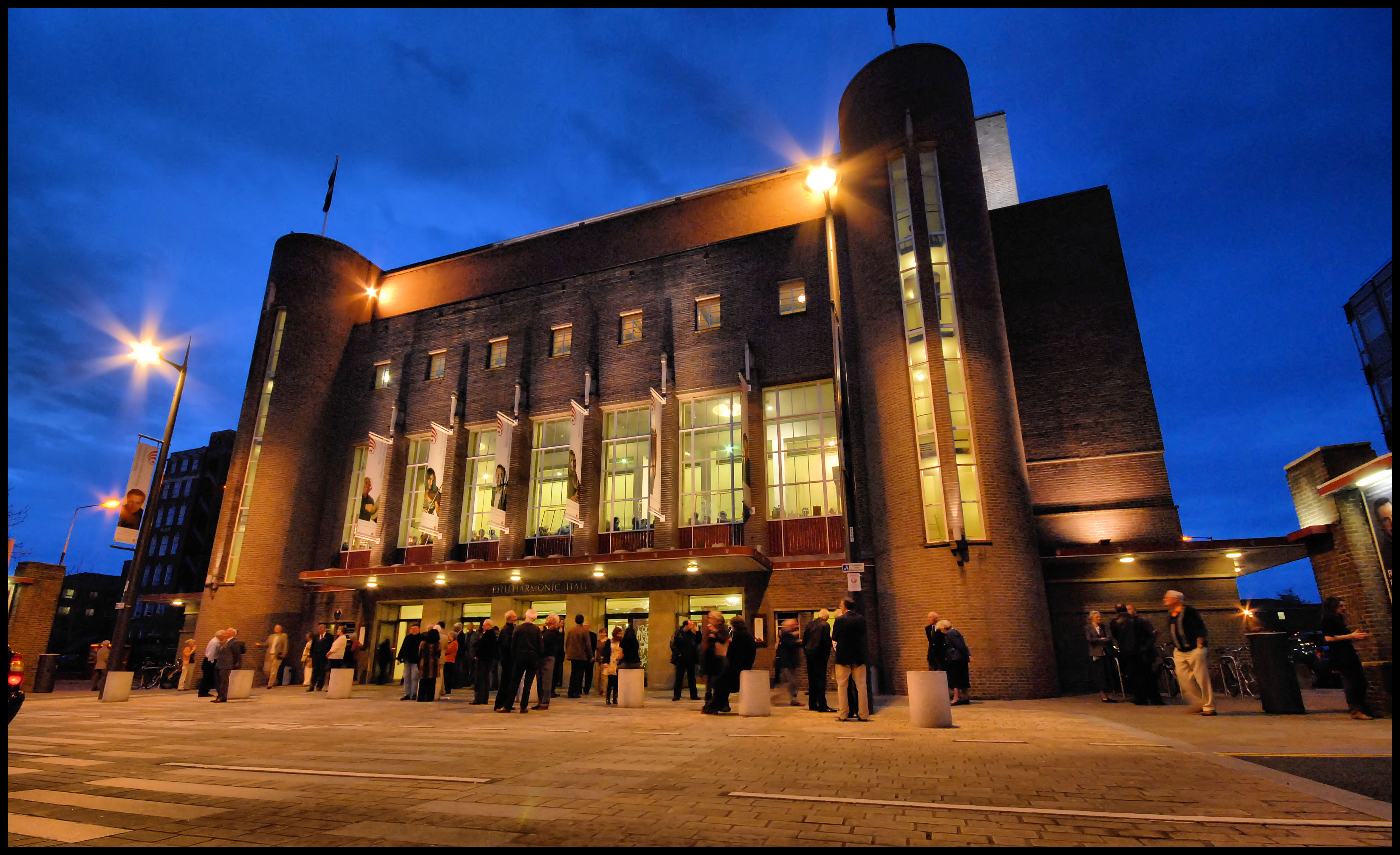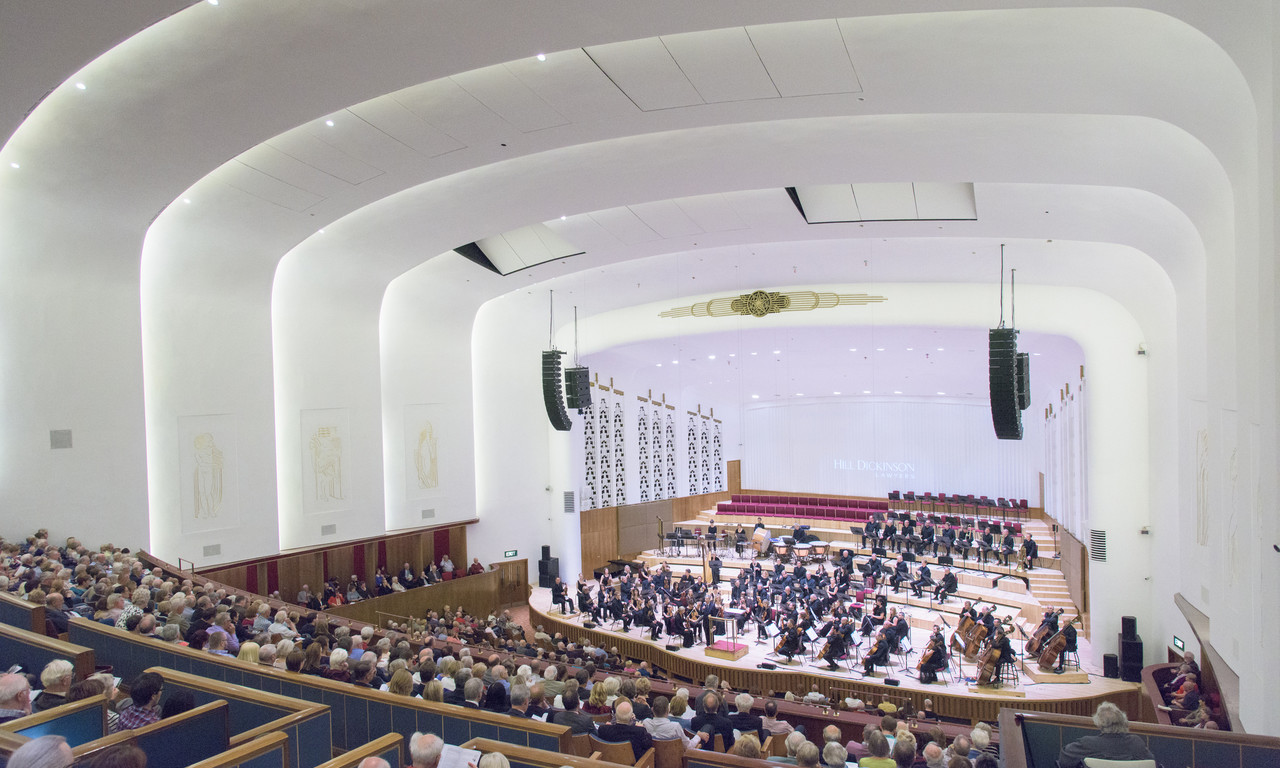Philharmonic liverpool – Liverpool Philharmonic, a cornerstone of Liverpool’s cultural landscape, boasts a rich history spanning over a century. From its humble beginnings to its current status as a world-renowned orchestra, its journey is marked by iconic conductors, groundbreaking performances, and a deep commitment to community engagement. This exploration delves into the orchestra’s evolution, its stunning home at the Philharmonic Hall, and its enduring impact on the city’s identity.
The orchestra’s repertoire showcases a diverse range of musical styles, reflecting its dedication to both classical traditions and contemporary innovation. Its commitment to education and outreach programs ensures that the transformative power of music reaches a broad audience, fostering a vibrant cultural ecosystem in Liverpool. The following details reveal the captivating story behind this esteemed institution.
A Legacy of Sound: The Royal Liverpool Philharmonic Orchestra: Philharmonic Liverpool
The Royal Liverpool Philharmonic Orchestra (RLPO) stands as a cornerstone of Liverpool’s cultural identity, a testament to the city’s rich musical heritage and its enduring commitment to artistic excellence. For over a century, the RLPO has captivated audiences with its diverse repertoire, nurtured talent, and fostered a vibrant musical community. This exploration delves into the orchestra’s history, its iconic home, its influential figures, and its enduring contribution to Liverpool’s cultural landscape.
History of the Royal Liverpool Philharmonic Orchestra
The RLPO’s story begins in 1840 with the founding of the Liverpool Philharmonic Society. Early years saw a focus on subscription concerts, featuring prominent guest conductors and a repertoire largely dominated by Classical and Romantic works. The orchestra’s evolution saw shifts in musical styles and repertoire, reflecting broader trends in the world of classical music. The appointment of Sir Thomas Beecham in 1909 marked a pivotal moment, bringing international recognition and establishing a higher standard of performance.
The orchestra’s survival through two World Wars and its continued growth in the latter half of the 20th century is a testament to its resilience and the dedication of its musicians and patrons. The granting of “Royal” status in 1992 further cemented its position as a leading British orchestra.
| Era | Conductor | Notable Performances | Audience Size (Estimate) |
|---|---|---|---|
| Early Years (1840-1900) | Various Guest Conductors | Performances of major works by Beethoven, Mozart, and Brahms | Several hundred |
| Beecham Era (1909-1929) | Sir Thomas Beecham | Introduction of modern works and expansion of repertoire | Increasingly larger audiences |
| Post-War Growth (1945-1980) | Various Conductors (e.g., Sir Malcolm Sargent) | Focus on British composers and a broader range of repertoire | Thousands |
| Modern Era (1980-Present) | Various Conductors (e.g., Vasily Petrenko) | Diverse programming, including contemporary works and community outreach initiatives | Thousands, with significant reach through broadcasts and recordings |
The Liverpool Philharmonic Hall
The Philharmonic Hall, opened in 1939, is an architectural masterpiece renowned for its exceptional acoustics. Its design, a blend of Art Deco and functionalist styles, prioritizes the optimal transmission of sound. The hall’s famed acoustics are a result of meticulous design, featuring a carefully shaped auditorium and strategically placed reflective surfaces. The hall has undergone several renovations and upgrades over the years, maintaining its acoustical integrity while incorporating modern technological advancements.
The hall’s design compares favorably to other prestigious concert halls globally, such as the Musikverein in Vienna or the Concertgebouw in Amsterdam, though it possesses its own unique character and intimacy.
- State-of-the-art sound reinforcement systems
- Improved lighting and stage technology
- Enhanced accessibility features
- Improved climate control for optimal instrument and audience comfort
Notable Conductors and Musicians Associated with the Orchestra

The RLPO’s history is interwoven with the legacies of many distinguished conductors and musicians. Sir Thomas Beecham’s tenure established the orchestra’s international reputation, while later conductors like Sir Malcolm Sargent and Vasily Petrenko have shaped its artistic direction and repertoire. The orchestra has also collaborated with numerous renowned soloists, whose performances have enriched the musical life of Liverpool.
- Sir Thomas Beecham: Known for his flamboyant style and championing of British composers.
- Sir Malcolm Sargent: Brought a more formal and traditional approach to conducting.
- Vasily Petrenko: Known for his energetic and passionate conducting style, expanding the orchestra’s repertoire to include contemporary works.
- Andrew Manze: Brought a historically informed performance approach to the orchestra.
- Jan Latham-Koenig: Known for her clear musicality and ability to connect with the audience.
Three prominent soloists who have frequently performed with the RLPO include renowned violinist Hilary Hahn, celebrated pianist Lang Lang, and acclaimed cellist Yo-Yo Ma. Their collaborations have consistently garnered critical acclaim and enhanced the orchestra’s prestige.
A comparison of the conducting styles of Sir Thomas Beecham and Vasily Petrenko reveals a fascinating contrast. Beecham’s approach was characterized by a more romantic and expressive style, while Petrenko’s is often described as more intense and driven, reflecting a modern approach to interpretation.
The Concertmaster, [Name of current Concertmaster], is a highly respected musician with extensive experience both nationally and internationally. Their career has been marked by numerous awards and accolades, reflecting their technical mastery and profound musicality. Their dedication to the orchestra is evident in their leadership and mentoring of younger musicians. They are a vital part of the RLPO’s artistic success.
The Orchestra’s Repertoire and Programming
The RLPO’s programming reflects a commitment to artistic diversity and audience engagement. The orchestra performs a wide range of musical genres, from Baroque masterpieces to contemporary compositions, including works by British composers and international artists. The programming also incorporates educational concerts and family-friendly performances to engage a broader audience.
Explore the different advantages of goalkeeper manchester united that can change the way you view this issue.
| Period | Number of Performances (Example) | Percentage of Total Performances (Example) | Example Composers |
|---|---|---|---|
| Baroque | 20 | 10% | Bach, Handel |
| Classical | 30 | 15% | Mozart, Haydn |
| Romantic | 80 | 40% | Beethoven, Brahms, Tchaikovsky |
| 20th/21st Century | 60 | 30% | Stravinsky, Britten, contemporary composers |
Community Engagement and Educational Initiatives, Philharmonic liverpool
The RLPO actively engages with the Liverpool community through a variety of outreach programs and educational initiatives. These include youth orchestras, music education programs in local schools, and collaborations with community organizations. The orchestra’s commitment to music education aims to inspire the next generation of musicians and foster a lifelong appreciation for music. These programs have a measurable impact, evident in increased participation in music education and a growing appreciation for classical music within the community.
The Orchestra’s Role in Liverpool’s Cultural Identity
The RLPO is inextricably linked to Liverpool’s cultural identity. It serves as a major cultural attraction, drawing visitors from across the UK and internationally. The orchestra collaborates with other cultural institutions in the city, contributing to a vibrant and diverse arts scene. The RLPO’s performances and initiatives actively promote Liverpool’s cultural heritage, reinforcing its image as a city with a rich artistic legacy.
A typical concert night at the Philharmonic Hall evokes a sense of community and shared experience, with the audience captivated by the music and the grandeur of the hall’s architecture. The atmosphere is one of excitement, anticipation, and deep appreciation for the art form.
The Royal Liverpool Philharmonic Orchestra stands as a testament to the power of music to enrich lives and shape cultural identity. Its enduring legacy, built on exceptional talent, innovative programming, and a strong community focus, continues to resonate throughout Liverpool and beyond. From its historic performances to its forward-thinking initiatives, the Philharmonic remains a vital force in the city’s cultural tapestry, promising many more years of inspiring artistry and community engagement.

